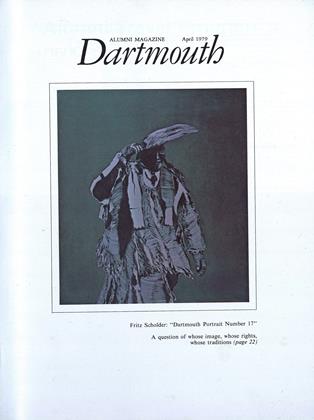John Wolfe '46. The Wrong Target. Major Books, 1978. 160 pp. A whodunit. The locale Manhattan, the time indefinite, the setting a nightclub replete with stand-up comic, assorted syndicate types, New York gossip columnist, nubile stripper ("Featuring tonight: Cherry Nelson's superstripping superstructure"), homicide detective, and rich-girl club owner. The hero is a switch — just barely; instead of a private eye he's a PR man. Whatever, he still has the obligatory machismo: 6-2, ex-tackle at Northwestern, Vietnam veteran, and airplane pilot with broken nose and unobtrusive scar on face. Add two murders, a dash of motivation, plot involutions, sexual romps of the fantasy kind, and a next-to-last-page denouement.
Owen M. Fiss '59. The Civil Rights Injunction. University of Indiana Press, 1978. 117 pp. Historically, Fiss argues, the injunction has been deemed a legal remedy of last resort, to be sought only when other, less drastic remedies are inadequate. Though the famous Brown v. Board of Education gave the injunction new primacy as a remedy in civil-rights cases, today the injunction is again under attack by those who would return to the traditional doctrine of application. Drawing on his experience in civil-rights litigation of the sixties, Fiss disputes the traditionalists' view and adduces arguments to legitimate the court's exercise of its injunctive power to protect minority rights. Fiss is a professor of law at Yale.
Woodrow B. Thompson '68. Surficial GeologyHandbook for Coastal Maine. Maine Geological Survey, 1978. 66 pp. A technical manual but with a practical application, this book maps and analyzes the various deposits — till, clay, sand, gravel — between the earth's surface and underlying bedrock in coastal Maine. Since the properties of such deposits determine their usefulness as aquifers, sewage disposal sites, and building sites, the major purpose is to provide planners and developers with the information necessary for sound land-use decisions.
William G. Jaspersohn '69. A Day in the Lifeof a Veterinarian. Little, Brown, 1978. 74 pp. A book for mature children which follows, in text and photograph, a day in the life of Dr. David B. Sequist of Morrisville, Vermont. Jaspersohn's black-and-white photographs are ample, two or three to the page, and his text does not talk down to the juvenile reader. Text and photograph depict the vet's routine small- animal chores — worming dogs innoculating cats, removing porcupine quills from sore canine snouts, trimming poodles' toenails — as well as some more spectacular aspects of large-animal surgery, such as treating a cow for milk fever or repairing a twist in a horse's intestine. Nor does Jaspersohn evade the uncomfortable necessity for destroying an incurable animal.
Hoyt Alverson, Associate Professor of Anthropology. Mind in the Heart ofDarkness: Value and Self-Identity among theTswana of Southern Africa. Yale University Press, 1978. 299 pp. Alverson's question: how do "rigid systems of colonial control affect the conscious self-identities of peoples whose existence is for the most part lived out in the lowlands of colonial domination?" The accepted answer among anthropologists has been that "the denigration inherent in modern colonialism ... produces deep and lasting psychic scars in the peoples subjected to such systems." Skeptical of this "scars of bondage" thesis, Alverson studied the Tswana of southern Africa for over two years at first hand. His conclusions call accepted wisdom into question. Despite their colonial dependence, most of the Tswana, he found, "claim and affirm the values and identity of unalienated consciousness...they still form life-projects they may not reach and in which they live a world of thought - belief, value, and desire — that melds with a world of deeds."
 View Full Issue
View Full Issue
More From This Issue
-
 Feature
FeatureThere and Back Again
April 1979 By John S. Major -
 Feature
FeaturePilgrims' Progress
April 1979 By L. Bruce Anderson, Edward Bradley -
 Feature
FeatureA winter of discontent, a day of perceiving differences
April 1979 By Shelby Grantham -
 Article
ArticleJust Out of Reach
April 1979 By M.B.R. -
 Article
ArticleBooks in Process
April 1979 -
 Article
ArticleMoney Man
April 1979 By M.B.R.
Article
-
 Article
ArticleLITERARY ELECTIONS
July 1920 -
 Article
ArticleFOUR PRIZES OFFERED FOR ECONOMICS ESSAYS
December, 1923 -
 Article
Article"Amen, Etc."
June 1924 -
 Article
ArticleTHE GENERAL CATALOGUE
November, 1025 -
 Article
ArticlePRESIDENT CONTRIBUTES EDITORIAL TO "THE PUBLIC LEDGER"
December, 1922 By ERNEST MARTIN HOPKINS. -
 Article
ArticleFRESHMAN SPORTS
APRIL 1971 By JACK DEGANGE

